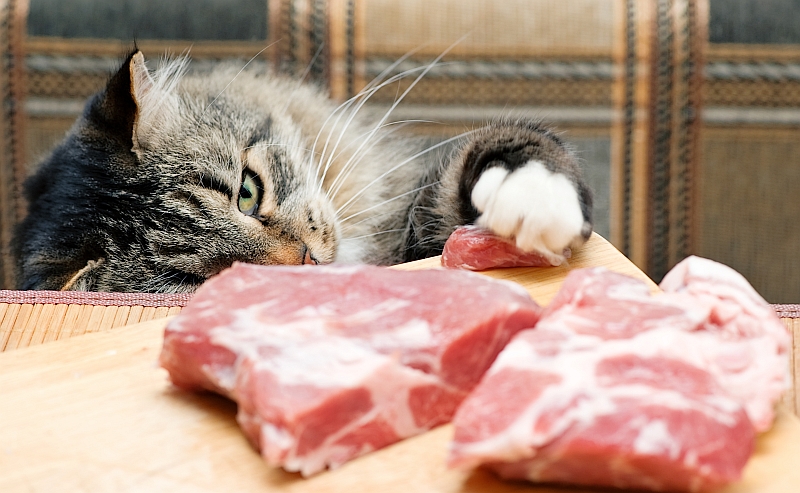Homemade Cat Food
Cats seem aloof and independent, but house cats depend on their human to provide them with a nutritious diet. Some cats have humans that ponder giving their feline companions homemade food, especially prepared for them, and their dietary needs, going above and beyond what store-bought food might be able to provide. This decision has its benefits, as well as drawbacks, but most important of all, requires commitment.
Cats can be a bit fussy about what they eat, so before diving in with a full commitment to make homemade cat food, it is best to start slow, and see if your cat will eat a bit of raw chicken, or fish. If she is receptive, then you can start with a more complicated recipe.
No matter what recipe you choose, or whether you decide on a raw or cooked diet, it is important to keep your cat’s dietary needs in mind, and go as far as consulting your veterinarian and/or an animal nutritionist before embarking on this adventure.
Unlike dogs, cats are obligate carnivores, which means that their diet must consist mostly of meat (animal flesh). So if you have a mixed-pet (dogs and cats) household, don’t think that you can make one type of food for all your furry friends.
Feline Nutritional Needs
As an obligate carnivore, a cat has certain dietary needs which must be met through a well-prepared diet. In major part, the requirements are met through the consumption of meat (e.g. animal flesh, including fish), which provides protein, amino acids, fatty acids, vitamins, minerals, and water. A feline diet does not need to have any carbohydrates; however, some complex carbohydrates can be included in the diet in order to provide extra energy, and reduce the cost of preparing homemade cat food.
Like dogs, cats also require a lot of calcium in their diet, which is an important ingredient for a healthy cat food. The best way to include calcium in your homemade cat food is to use real animal bone, so look for such ingredients in any homemade cat food recipe you are considering using. With that said, there are a couple of significant points to keep in mind when preparing homemade cat food:
- Add liver and taurine to your homemade cat food in order to provide a well-balanced diet for your cat. The liver (which also contains taurine) and taurine will help contribute to the neurological and cardiovascular health.
- If feeding a boneless diet, make sure to add calcium. Even though boneless meats provide most of the nutrients needed by felines, it provides almost no calcium so it is necessary to supplement a boneless meat diet with calcium additives.
Raw vs Cooked Cat Food
Preparing homemade raw cat food is not for everyone; it requires a lot of dedication and attention to detail in order to prevent illnesses (salmonella) which can result from raw meats, and other diseases which can be transmitted to humans after infecting a cat through a less than great raw diet.
If you do decide to prepare raw food for your cat, make sure that before starting such a regiment, that proper research and study has been done in order to make sure that no food-borne illnesses are introduced into the household.

